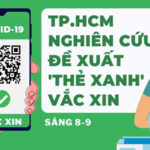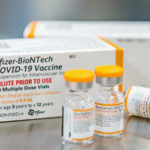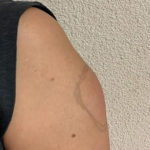COVID-19 is the most dangerous infectious disease in human history, with an unprecedented rate of spread caused by the new coronavirus strain (SARS-CoV-2).
Vietnam now has the AstraZeneca COVID-19 vaccine (from the UK), and the largest vaccination campaign to date in Ho Chi Minh City has been officially launched. Join us in reading the frequently asked questions to get answers to your questions about this important vaccination!
For further reference:
1 Can I still get COVID-19 after being vaccinated?
YES. No vaccine is 100% effective, and the AstraZeneca COVID-19 vaccine is no exception.
The AstraZeneca COVID-19 vaccine, developed with Oxford University, has been shown to provide up to 89% protection, but the remaining vaccinated individuals can still get infected. However, the disease will be much milder, and the risk of hospitalization or severe complications is negligible.
According to research, seven out of ten people are protected to some extent three weeks after the first dose. The second dose should be administered four to twelve weeks later, and it is crucial to continue following local guidelines and practicing the 5K message: wear a mask, wash your hands, and maintain social distancing.
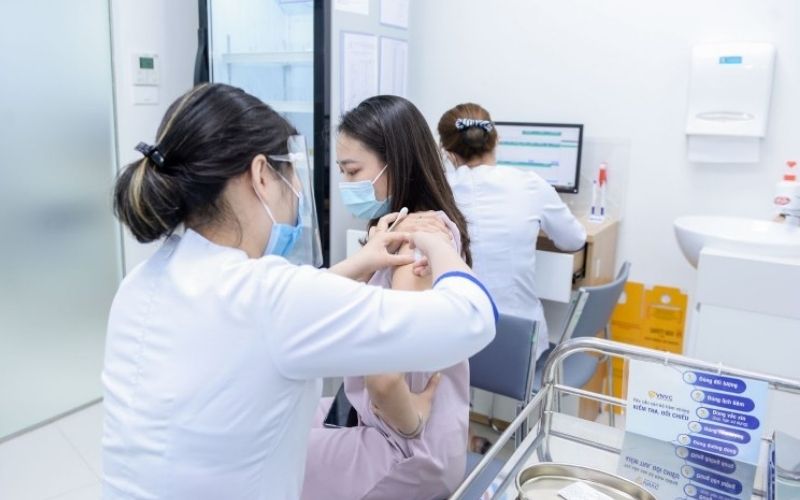
2 Does the coronavirus vaccine cause infertility?
NO. There is currently no evidence or data to suggest that the COVID-19 vaccine can cause infertility.
Researchers state that no approved COVID-19 vaccine has any impact on the fertility of both men and women. Further clinical trials are planned, and related information will be provided to physicians or healthcare professionals.
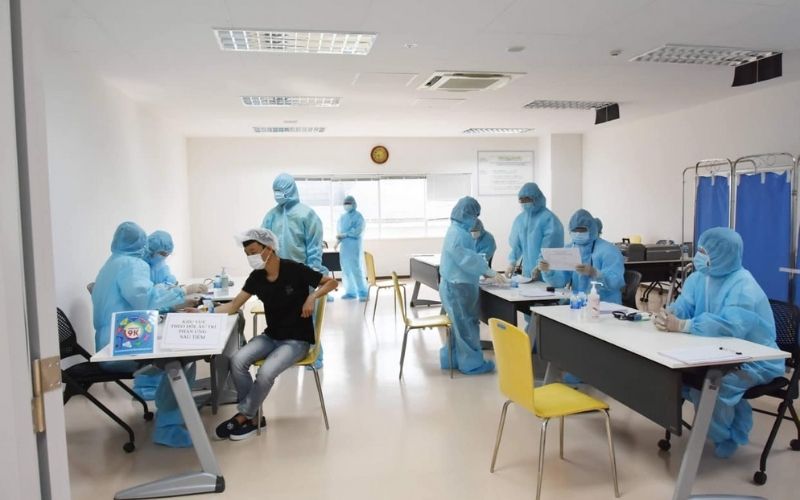
Reference:
3 Should I get vaccinated if I’ve already had COVID-19 and recovered?
YES. It is highly recommended to get vaccinated against COVID-19 regardless of whether you’ve had the disease or not. Even after recovering from SARS-CoV-2 infection, you still face a rare risk of reinfection, so vaccination is the safest, simplest, most cost-effective, and most efficient way to protect your body from this global virus.
If you’ve been treated for COVID-19 with monoclonal antibodies or convalescent plasma, it is advisable to wait for 90 days before getting vaccinated. Be sure to disclose your medical history to your doctor for accurate advice.
For further reference:
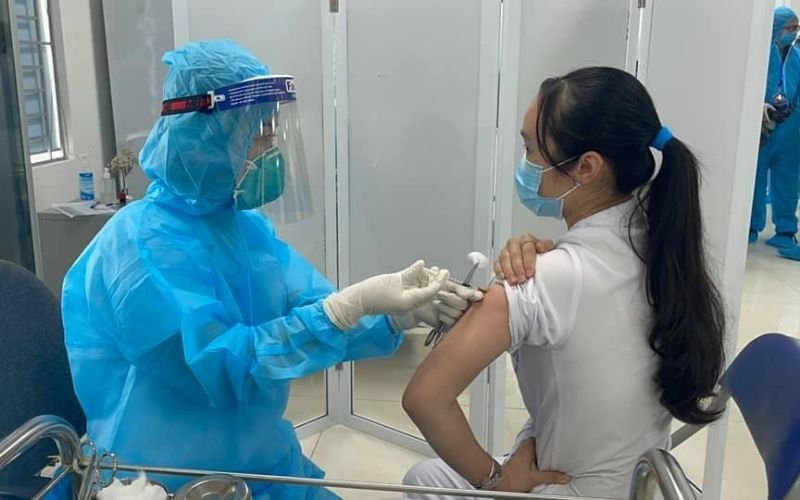
4 Is the vaccine effective against new variants?
YES. The COVID-19 situation in Vietnam is complex and unpredictable, with multiple sources of infection, variants, and outbreaks spreading rapidly across the country.
Therefore, building community immunity through vaccination is considered a safe tool to end the pandemic and return life to normal.
Current data shows that the COVID-19 vaccine is effective against most new variants. For the two new variants of the SARS-CoV-2 virus, namely the Indian (B.1.617.2) and the UK (B.1.17), the AstraZeneca vaccine can provide similar protection to that of the original strain.
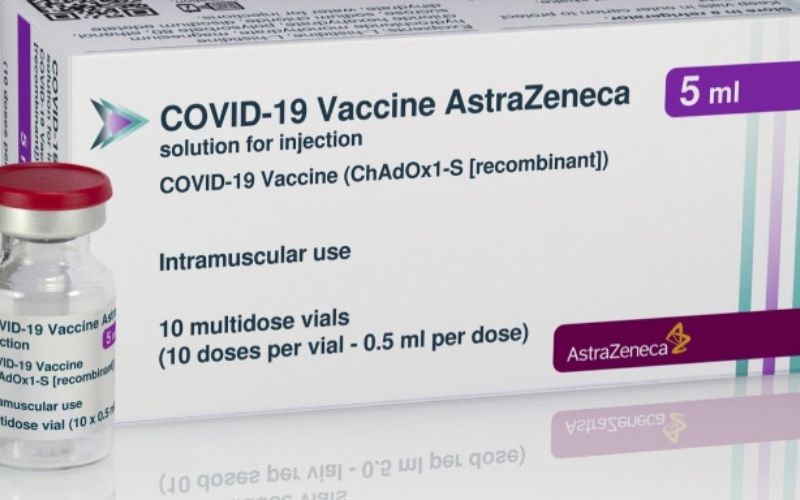
5 What are the possible side effects after vaccination?
The World Health Organization (WHO) affirms that the COVID-19 vaccine is safe and protects the body from attacks, complications, and death caused by the SARS-CoV-2 virus. Mild side effects may occur after vaccination, indicating that your body is building protection. This means that the vaccine is working, and your immune system is responding normally.
Similar to any other vaccine, the COVID-19 vaccine can cause mild to moderate reactions such as fever, headache, chills, muscle pain, fatigue, nausea, dizziness, and increased heart rate. These symptoms may appear after vaccination but will subside within a few days and have no impact on health.
It is important to emphasize that severe reactions to the COVID-19 vaccine are extremely rare, while the benefits of vaccination far outweigh the risks. If you experience severe side effects such as high fever, seizures, sepsis, abscesses, anaphylaxis, or blood clots, contact your doctor or the nearest hospital immediately for diagnosis, treatment, and timely management.
However, if you don’t experience any side effects after receiving the COVID-19 vaccine, it does not mean that the vaccine is ineffective. To put it simply, each individual will have a different response to the vaccine. It is best to prepare a list of questions about possible side effects before getting vaccinated, so your doctor can provide specific advice.
For further reference:
6 Is it safe to vaccinate my child?
YES. The COVID-19 vaccine has been proven safe and effective beyond the expectations of the World Health Organization (WHO). Your child may experience common side effects after vaccination, which will subside within a few days.
The COVID-19 vaccine is indicated for individuals aged 18 and older and is not recommended for younger individuals. Therefore, if your child meets the age criteria, it is advisable to proceed with vaccination as soon as possible.
For children and adolescents under 18, scientists worldwide recommend against/postponing COVID-19 vaccination for the following reasons:
- The vaccine has not been tested sufficiently to determine its safety and effectiveness in this age group.
- Children with COVID-19 usually have no symptoms or mild symptoms compared to adults.
- Children have a lower rate of COVID-19 infection and mortality.
For further reference:
–
–
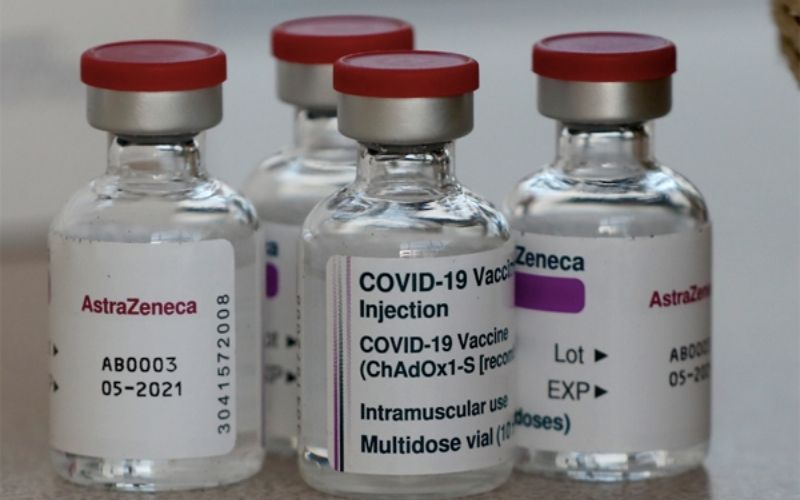
7 Can I get vaccinated if I’m pregnant?
The AstraZeneca COVID-19 vaccine is not recommended for pregnant and breastfeeding women, as there is limited data on the vaccine’s safety during pregnancy.
However, pregnant women are at higher risk of severe complications if they contract COVID-19. From another perspective, pregnant women can still be vaccinated if the benefits of vaccination outweigh the potential risks posed by the vaccine.
For this reason, pregnant women with high-risk factors for SARS-CoV-2 infection (such as healthcare workers) may be considered for vaccination after receiving specialized medical advice.
For further reference:
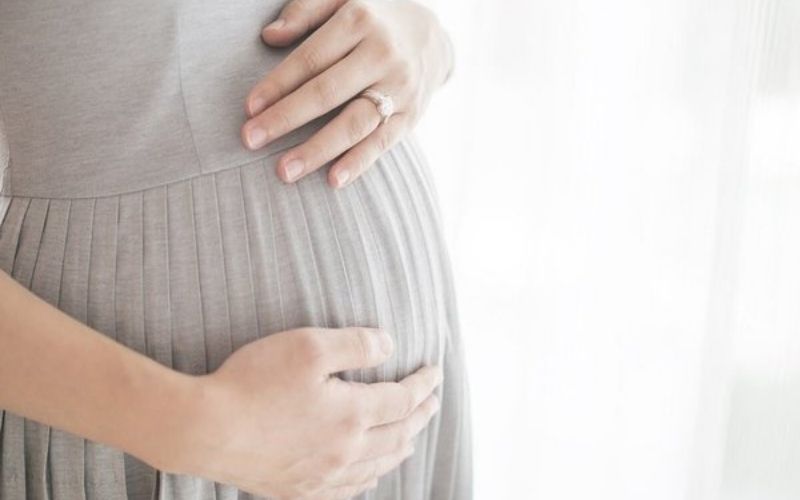
You should also see:
8 How long does the vaccine last?
As the AstraZeneca COVID-19 vaccine is new, there is insufficient time to confirm how long the protection will last. However, the AstraZeneca COVID-19 vaccine has been administered to thousands of individuals in clinical trials, and all participants have been carefully monitored for 12 months.
It is recommended to complete both doses of the COVID-19 vaccine. If you miss the second dose, consult your doctor or healthcare provider for advice. Receiving the second dose of the AstraZeneca COVID-19 vaccine is crucial.
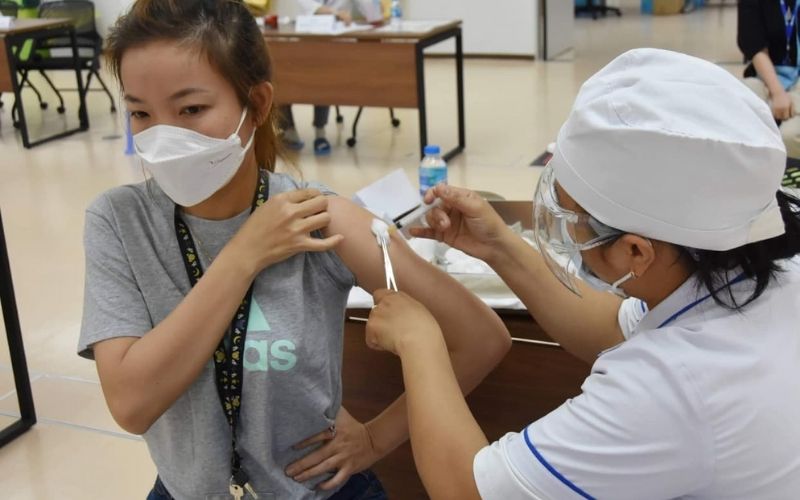
9 If I’ve received both doses, do I still need to wear a mask and avoid contact with others?
YES. The Ministry of Health advises that not everyone will have the same immune response to the vaccine. With most vaccines, the protection rate is never 100%, and the COVID-19 vaccine is no exception. Therefore, infection can still occur in fully vaccinated individuals, although it is uncommon.
It is essential to note that even after receiving one or both doses of the vaccine, individuals must strictly adhere to the preventive measures outlined in the 5K message from the Ministry of Health: Wear a mask, Disinfect, Keep distance, No gathering, and Health declaration.
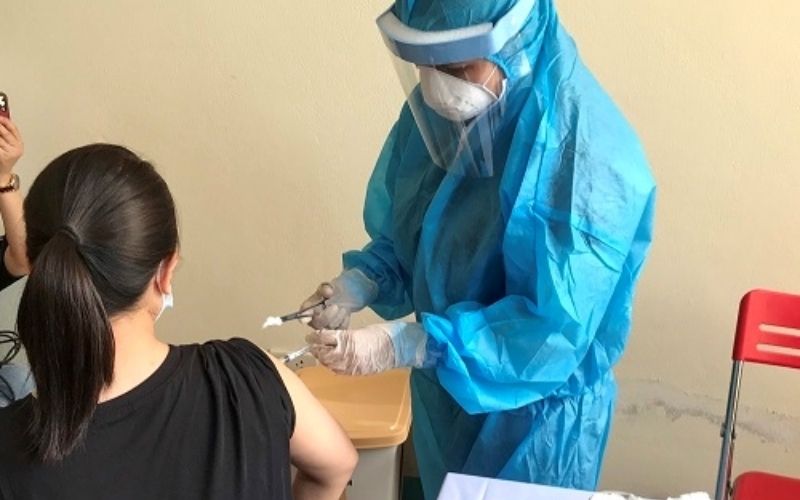
Combining both the COVID-19 vaccine and the 5K message is crucial for effective pandemic prevention and control.
10 What are the components of the vaccine?
The AstraZeneca COVID-19 vaccine contains an active substance and excipients, allowing it to be administered as an injection. The vaccine does not contain preservatives and includes excipients that stabilize the vaccine (preventing any changes).
The excipients in the AstraZeneca COVID-19 vaccine are:
- L-Histidine
- L-Histidine hydrochloride monohydrate (both amino acids)
- Magnesium chloride hexahydrate (supports intracellular activities)
- Polysorbate 80 (a stabilizer)
- Ethanol (alcohol)
- Sucrose (sugar)
- Sodium chloride (salt)
- Disodium edetate dihydrate (EDTA, a chelating agent)
- Water for injection
These components ensure that the AstraZeneca COVID-19 vaccine cannot cause COVID-19 or the common cold.
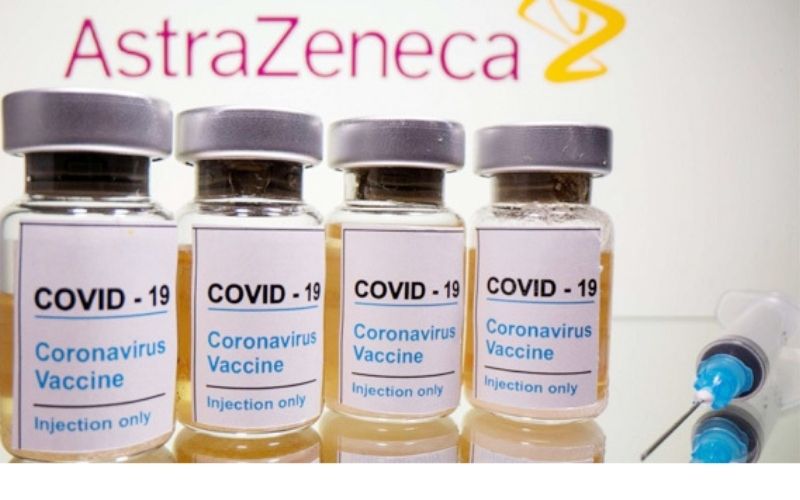
11 How many doses are needed?
With the current dangerous variants of the SARS-CoV-2 virus, it is essential to receive both doses of the AstraZeneca COVID-19 vaccine to prevent viral invasion. Medical experts emphasize the need to complete both doses to achieve the highest level of protection:
- First dose: Initial injection.
- Second dose: Administered 4 to 12 weeks after the first dose.

12 Who should not get vaccinated?
According to the World Health Organization (WHO), each country needs to vaccinate at least 70% of its population to achieve herd immunity. Similar to other pharmaceuticals, the COVID-19 vaccine may cause some side effects and may not be suitable for certain individuals.
Anyone with a history of severe allergic reactions to any of the active substances or excipients listed in the vaccine’s composition SHOULD NOT receive the vaccine.
Additionally, caution is advised for the following groups:
- If you have ever had a severe allergic reaction (anaphylaxis) after a previous vaccine injection.
- If your immune system is compromised (immunocompromised) or you are taking immunosuppressive medications (such as high-dose corticosteroids, immunosuppressive drugs, or cancer treatments).
- If you currently have a severe infection with a high body temperature (above 38°C/ 100.4°F).
- If you have a bleeding disorder or are taking blood thinners (anticoagulants).
Explaining Ho Chi Minh City’s Eligibility Criteria for Blue and Yellow Cards in Relation to COVID-19
Are you a resident of Ho Chi Minh City looking to understand what the green and yellow cards mean for COVID-19? Are you curious to know who is eligible and what advantages these cards bring? Then look no further! This article aims to give you an in-depth look at the details and help you to make preparations if you meet the criteria.
A Nationwide COVID-19 Vaccination Drive for Children Aged 5-11: Protecting Our Youngest Citizens.
“With the ongoing COVID-19 vaccine rollout, there has been significant progress in protecting adolescents aged 12-17. Now, the question on everyone’s mind is: When will the younger cohort, aged 5-11, have their turn to receive the COVID-19 vaccine? It’s time to delve into this topic and explore the possibilities.”


























